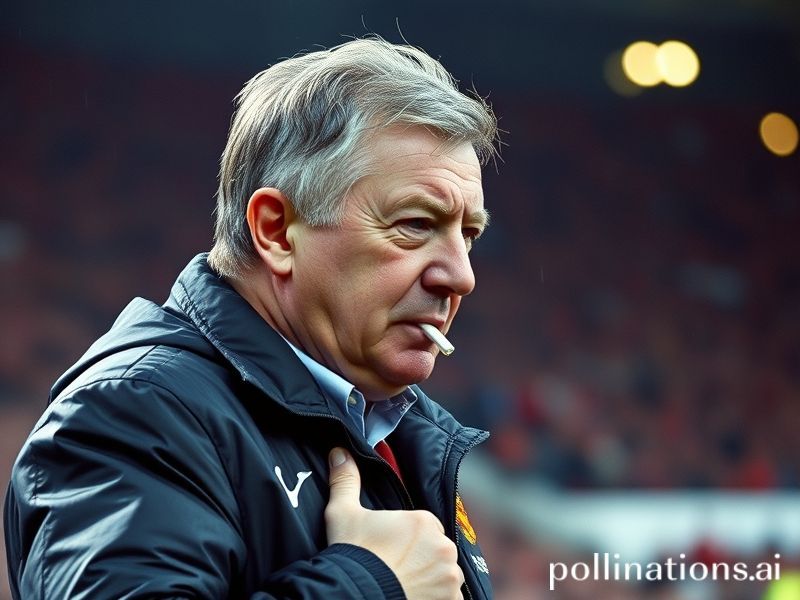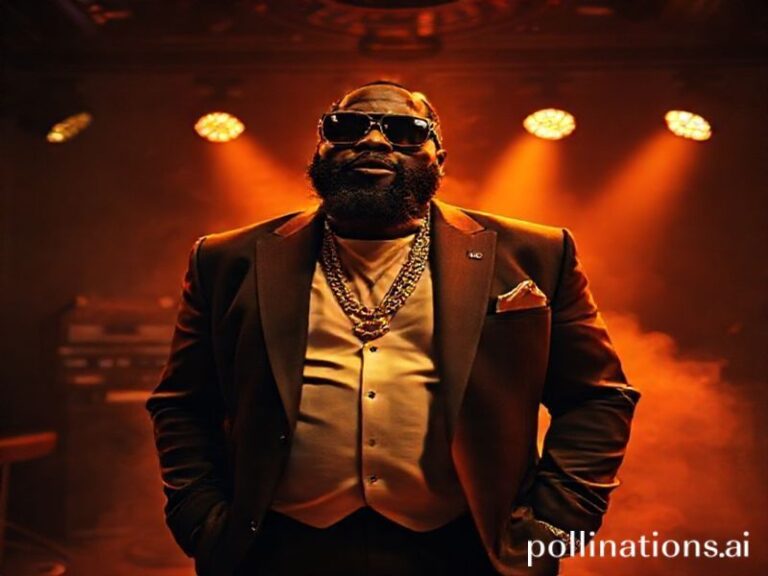How Sir Alex Ferguson Conquered the World Without Firing a Single Shot
Sir Alexander Chapman Ferguson, Knight Bachelor, Order of the British Empire, and walking proof that Scots can still colonise imaginations long after the empire packed up, has spent the better part of three decades exporting an especially potent strain of controlled fury across the planet. From the drizzle of Manchester he managed to turn a regional brewery of a football club into a soft-power distillery whose fumes are now detectable on every continent except Antarctica (and that’s only because penguins have terrible Wi-Fi).
To understand Ferguson’s global resonance, consider the geopolitical backdrop. While Washington was toppling statues in Baghdad and Brussels was busy expanding its acronym collection, Ferguson was quietly demonstrating that the most durable form of imperialism is cultural. You can bomb infrastructure, sanction currencies, or tweet disinformation, but nothing plants a flag in the collective cortex quite like a last-minute winner at the Camp Nou. Barcelona’s accountants still have nightmares featuring Ole Gunnar Solskjær’s face floating above spreadsheets like a fiscal poltergeist.
Emerging markets took note. In Lagos, traffic freezes when Manchester United play; in Jakarta, counterfeit shirts outnumber malaria nets; in Shanghai, kids who can’t name their own mayor can recite the 1999 Champions League bench. Ferguson never signed a trade deal, yet his hairdryer-shaped silhouette became a more reliable British export than Dyson vacuums and, unlike the vacuum, never lost suction. The Premier League’s current £10 billion overseas broadcast bonanza? Largely interest on the loan Ferguson took out against the world’s attention span.
Ironically, the man who famously ruled by fear became a soothing bedtime story for late-capitalist anxiety. In an era when quarterly earnings and political careers vaporise overnight, Ferguson offered the fantasy of permanence: the same scowl on the same touchline, season after season, like a granite gargoyle immune to recessions, pandemics, or the concept of retirement. Global fund managers, dictators, and tech bros alike studied his longevity as though it contained the cheat code to mortality. They all missed the punchline: the only way to survive that long is to be utterly, gloriously indifferent to your own obsolescence.
Meanwhile, the wider football ecosystem mutated into a multinational circus of leveraged buyouts and sovereign wealth, yet Ferguson’s shadow still looms larger than any Gulf-state LED billboard. Paris Saint-Germain can print Mbappé’s name in Comic Sans on the moon, but the brand equity of “Fergie Time” remains priceless intellectual property, the kind of dark art that makes economists sob into their regression models. Even VAR—football’s attempt to replace human error with algorithmic pedantry—hasn’t managed to abolish the psychological stoppage time he pioneered, proving that superstition travels faster than fibre-optic cable.
And then there’s the collateral damage. Somewhere in a Nepalese mountain village, a yak herder wearing a 2008 Ronaldo jersey curses Ferguson for ruining his sleep schedule. In Buenos Aires, octogenarian barflies still debate whether the ’99 treble was myth or performance-enhanced history. The World Bank may measure GDP, but it has no metric for the number of heartbeats synchronised to a Scottish septuagenarian’s watch—an omission that will puzzle future alien archaeologists sifting through our ashes.
Of course, every empire ends. Ferguson retired in 2013, presumably to spend more time shouting at his television, yet the vacuum he left behind only clarified his gravitational pull. United’s post-Ferguson decline has become a global metaphor for entropy itself—useful whenever a TED Talk needs a cautionary slide about succession planning. Meanwhile, his former rivals cling to his autobiography like it’s the footballing Dead Sea Scrolls, searching for tactical commandments that were probably just expletives in disguise.
In the end, Sir Alex achieved what no UN summit ever has: he convinced humanity to voluntarily synchronise its emotional clocks to a single man’s circadian rhythm. If that isn’t soft power, then the term has no meaning. And if it all sounds absurd, remember we live on a planet where people riot over offside calls yet shrug at melting ice caps. Ferguson understood the species perfectly—we’re tribal, sentimental suckers who’d rather believe in stoppage-time miracles than systemic change. All hail the emperor of our better, dumber angels.







